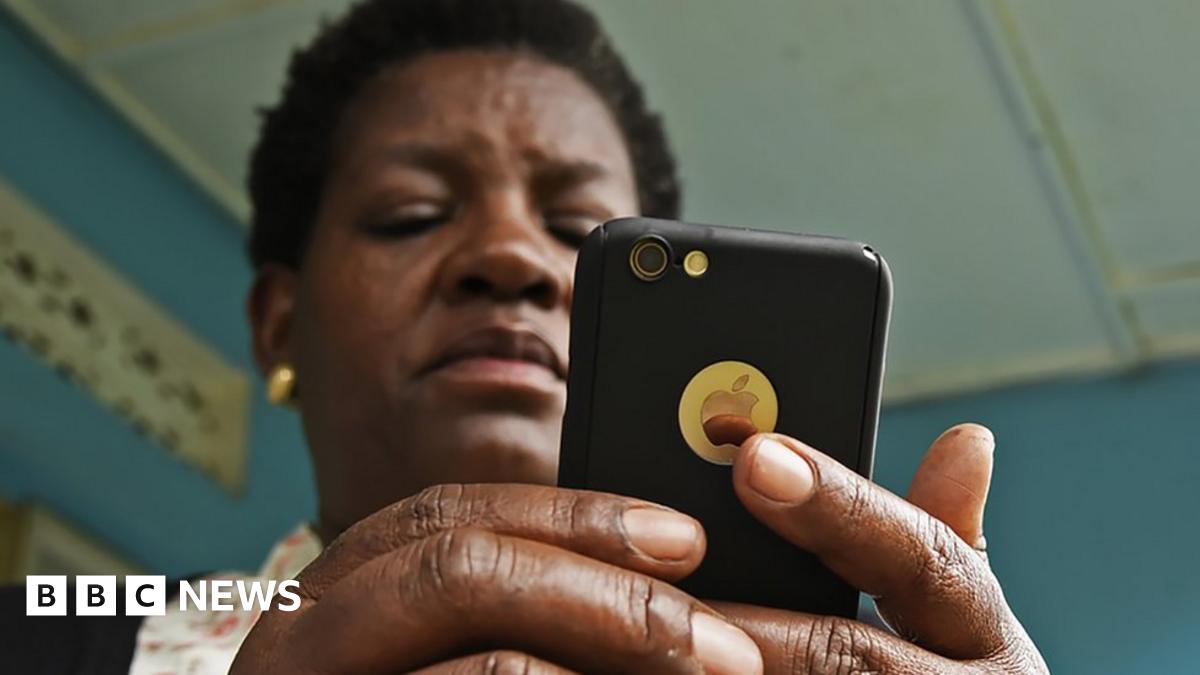OP-ED: WhatsApp's Global Dominance and Africa's Tech Evolution—A 2024 reflection
From WhatsApp eating the world to Ethiopian developers' quiet brilliance, Andile Masuku reflects on how big global tech and Africa's diverse tech cultures are reshaping our digital future.

Given the current Festive Season, I'm in a suitably reflective mood that's partially inspired by a brilliant piece of reporting for Rest of World by Issie Lapowsky entitled "How WhatsApp ate the world.”
WhatsApp’s global grip
The Rest of World article details the impressive and even unsettling ways Meta is leveraging a platform I can barely imagine life without to deliver on complete and utter world domination in numerous domains.
As the publication's editor-in-chief, Anup Kaphle, has pointed out on LinkedIn, WhatsApp is effectively "the internet" for many living in the developing world – a reality supported by the staggering numbers: 2 billion daily users sending over 100 billion messages across 60 languages and 180 countries.
Incidentally, Lapowsky’s piece was published shortly before Meta's platforms went on the blink for some users across multiple continents, offering a sobering reminder of how dependent the world has become on their digital infrastructure.
Facebook Libra 2.0
Back in 2019, when I penned an op-ed for BBC Africa examining Facebook's ambitious Libra cryptocurrency initiative, I found myself oddly cautiously optimistic about the prospect of disrupting the exploitative remittance industry that had made me "numb to the daylight robbery" that ensued whenever I sent cash to my family back home in Zimbabwe. The World Bank had reported that sending money in sub-Saharan Africa cost 20% more than any other region globally – a whopping $19 for every $200 transferred.

But watching WhatsApp's evolution through Lapowsky's reporting, I can't help but marvel at how Meta's ambitions have grown far beyond my simple remittance use case. They're not just trying to facilitate payments anymore – they're working to embed themselves into every aspect of commercial life in the Global South, from pottery sales to insurance policies.
In India alone, where WhatsApp boasts 400 million users, 90% of consumers now message with businesses weekly. And yet, when a technical hiccup can leave millions stranded globally, as it did last week, I'm reminded of the prescient concerns I raised in that BBC piece about the pros and pitfalls of allowing any single company to accumulate so much power over our digital lives.
Throwback conversation
Speaking of digital evolution across Africa, as we wind down 2024, African Tech Roundup is diving into its audio archives to serve up some memorable throwback conversations that capture pivotal moments in Africa's tech journey.
Rewinding to a fascinating corridor conversation from Afrobytes Tech Marketplace in Paris circa 2018 has me reflecting on how rarely Africa's two most populous nations – Nigeria and Ethiopia – feature in the same conversations about the continent's digital future.
I'm not one for stoking fires of competition between African markets, but I’m fascinated by the profound differences in cultural, genetic, geographical, historical, sociological, geopolitical and economic realities between these two powerhouse nations. Perhaps this interest was first sparked by my favourite university economics lecturer, Dr Wagaw Maritu, who was, and still is, thoroughly Ethiopian. Shout out to you, Doc!
Ethiopia-Nigeria developer paradoxes
The podcast conversation features Amadou Daffe, the Senegalese co-founder and CEO of Gebeya, who has transformed the company from an Ethiopian tech talent marketplace into a pan-African hybrid organisation connecting African developers with global opportunities.
It also includes Adewale Yusuf, the Nigerian founder and CEO of Techpoint Africa, who transitioned from steering his tech media platform to co-founding and leading TalentQL, the startup behind AltSchool Africa, which is now expanding its online tech education from Africa into Europe.
The exchange is particularly illuminating in how it highlights the contrasting developer cultures in both nations. Daffe spoke of Ethiopian developers' characteristic humility—highly skilled individuals who, despite being involved in projects as significant as programming the Sophia robot (apparently up to 50% of that code was done in Ethiopia), tend to quietly focus on proving themselves through their work rather than self-promotion.
The Ethiopian tech community's subdued delight in their involvement with Sophia was well-founded at the time - having local developers contribute significant amounts of code for what was then one of the world's most famous humanoid robots was no small feat for a tech ecosystem that rarely made global headlines. It demonstrated Ethiopia's capacity for world-class development work at a time when most international tech conversations about Africa centred almost exclusively on Nigeria, Kenya and South Africa.
Yet, viewing Sophia through a contemporary lens reveals how quickly the cutting edge of technology can recede into a blunt fossil. While groundbreaking in 2016-2018 with her 60-plus facial expressions and ability to engage in simple conversations, Sophia's capabilities - built on scripted responses and decision trees - now seem almost quaint in an era dominated by ChatGPT, Claude and other AI systems capable of sophisticated reasoning and complex content generation.
It's an illustration of how yesterday's technological marvel can become a nostalgic curio, virtually overnight. In tech, today's achievements, however impressive, often end up being tomorrow's baseline springboards.
This rapid technological evolution stands in fascinating contrast to what Yusuf described as the high-energy, openly ambitious nature of Nigerian developers. He painted a vivid picture of dedicated coders willing to sleep on a Lagos bridge just to access key training to advance themselves and whose determination has seen many of them go on to become "top developers in Germany, US, Netherlands, Switzerland... doing deep learning, robotics, doing a lot of AI."
'Like sands through the hourglass'
Time has given their 2018 predictions and concerns an unexpected resonance. Daffe's vision of creating more affordable, quality tech talent pools across Africa has proven prescient, though perhaps not quite in the way he imagined. While he spoke of Ethiopian developers potentially serving as a cost-effective alternative for Nigerian startups, the rise of remote work during the pandemic and the subsequent normalisation of distributed teams has created something more interesting: truly pan-African development teams where nationality matters less than capability.
Meanwhile, Yusuf's concerns about the sustainability of escalating developer salaries in Nigeria have evolved too. While he worried about local startups being priced out of the market, the current challenge is more nuanced. The global tech slowdown of 2022-23 and the rise of AI-augmented development tools have shifted the conversation from pure salary concerns to questions of value creation and specialisation.
Both Daffe and Yusuf seem to have anticipated this shift (perhaps partially unwittingly) in their own ways - their current ventures, Gebeya and TalentQL's AltSchool Africa respectively, focus not just on technical training but on preparing African developers for global opportunities in an increasingly AI-augmented world.
Meta-morphasis
As this Festive Season prompts reflection, the transformation of WhatsApp from a simple messaging app into a digital ecosystem in some ways parallels the broader tech evolution we’re witnessing across Africa.
The fascinating regional contrasts - like the interplay of Ethiopian and Nigerian developer cultures - are giving way to something more nuanced: a continent-wide digital transformation where old boundaries matter less than our collective capacity to adapt and evolve.
Much like WhatsApp itself, perhaps Africa's tech future lies not in the adoption of any single vision or approach, but in building momentum by converging our diverse digital journeys.
Editorial Note: A version of this opinion editorial was first published by Business Report on 18 December 2024.


